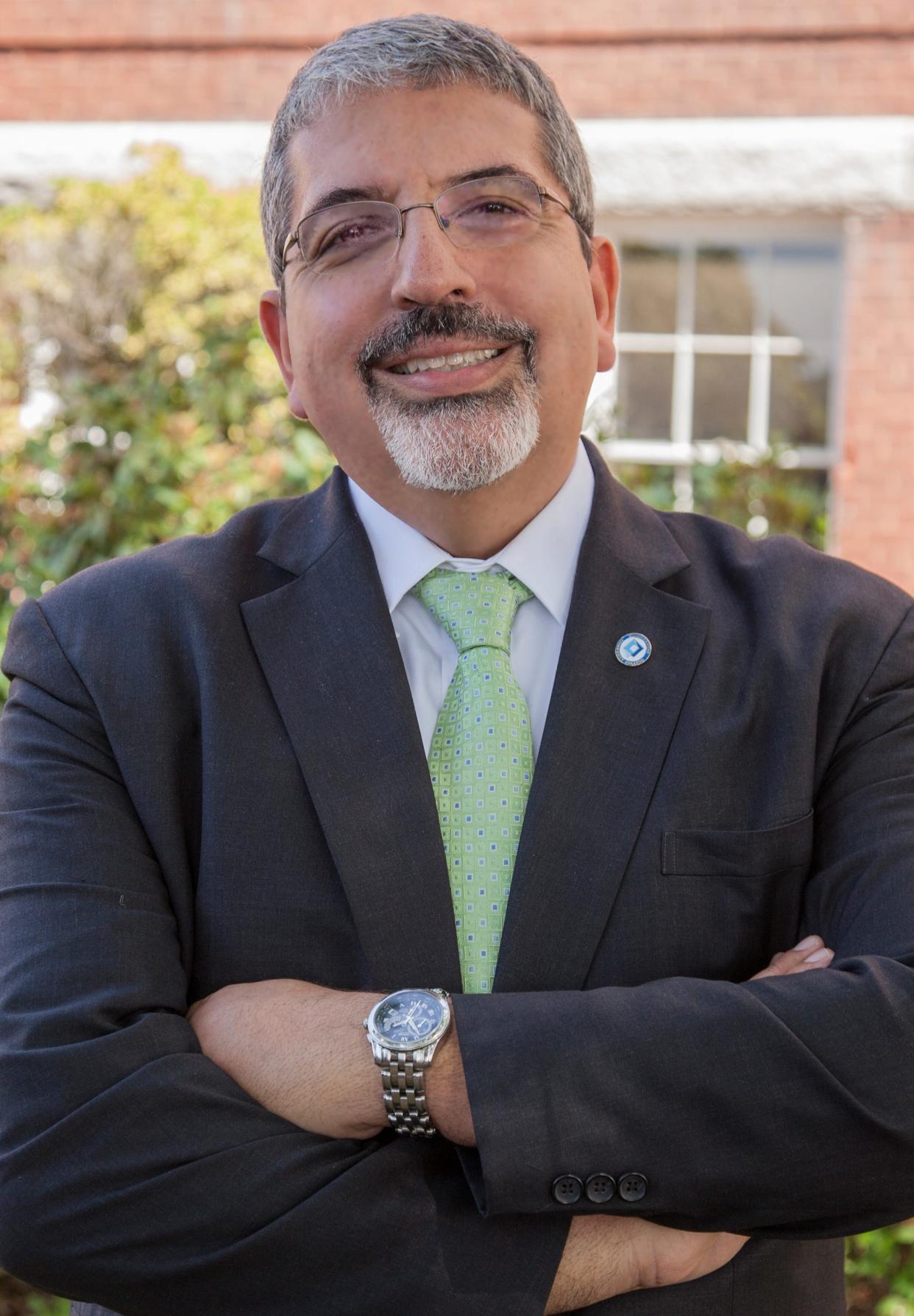Luis G. Pedraja: Education can sometimes be a leap of faith

Next month marks the start of the school year. It is one of my favorite times of the year as the students fill the halls of the college beaming with excitement, full of hope and dreams. It reminds me of my first days in higher education, as the first in my family to attend college. I felt like many of the students at QCC. I was filled with excitement and hope about the future, but I was also anxious and apprehensive about the journey that laid ahead.
After my first full day at the college I was attending, I remember sitting across from one of the athletic fields as the sun began to set, wondering whether I belonged in college at all. Very few of the other students and faculty looked like me and it made me question myself. I knew my parents were making sacrifices so that I could go to college. The hopes and dreams of my entire family rested on my shoulders. They did not have the opportunity to go to college. Would I succeed or let them down?
As a young immigrant from a low-income neighborhood, did I belong in college? Many of my friends had given up on going to college, instead choosing to work in jobs with limited income and dim future prospects to help make ends meet. But I also knew that my family, who had left everything behind when we emigrated to this country, always told me to study hard, because while most everything can be taken away from you, no one can take away your education. Despite my doubts and economic hardships, I persevered and stayed in college; ended up thriving and going on to earn advanced degrees. Looking back, if you would have told me back then that one day I would be the president of a college in Worcester, Massachusetts, I would not have believed you. That immigrant kid who grew up in poverty, who wondered if he belonged in college, is now a college president.
I also know that the doubts I felt are also the same doubts that plague many students and prospective students. Low-income students, immigrants, underrepresented minorities and others in our community are wondering if they belong in college. I assure you they do.
Yet unfortunately those self-doubts will keep some from enrolling in college and pursuing their dreams.
According to a recent report from the National Student Clearinghouse Research Center, overall college enrollment has declined 4.7% since spring 2021. Community colleges are experiencing a decline of 7.8% - the equivalent of 351,000 fewer students who are enrolling. We are seeing the greatest decline in our underrepresented minorities with men of color and low-income students. From fall 2019 to fall 2021, the statistics are particularly alarming with Black male community college enrollment declining by close to 24% and Latino male enrollment declining by 20%.
Why are the students who would benefit the most from a postsecondary education no longer considering enrolling in college? The pandemic has caused many of our community college students to struggle with job loss or reduced wages, and today this same population is feeling the effects of inflation that is making it imperative for many to work to survive. However, this is not the time to forgo a college education - it is the time to embrace it so that a better life can be realized.
For first-generation, low-income, and underrepresented minorities, going to college is truly a leap of faith. I know this firsthand. It is leaping into the unknown, unsure of what lies ahead – a leap with the hope that someone will catch them. And that is what we are about at community colleges like QCC. We have financial aid, support services, academic coaching, counseling and other resources to ensure that college students will succeed.
A report by the Georgetown Center for Education and the Workforce indicates that 65% of jobs will require some college training such as an associate degree or bachelor’s degree. And, as industry becomes more specialized, we will need a more highly skilled workforce than in the past to ensure our community thrives. While many jobs are becoming available and might entice people to postpone their education, they often have limited opportunities for career advancement. Upskilling and reskilling offer a clear pathway to a better life that will not only help our underprivileged, underserved populations but also be an economic driver for communities.
According to data from the Federal Reserve Bank of New York, salaries for full-time workers (ranging in age from 22 to 27) with a college education, have a median income of $52,000. High school graduates of the same age range and working full time have a median annual salary of $30,000. This is a staggering $22,000 difference. Imagine what that would equate to in 20 or 30 years.
In Massachusetts, a 2021 study sponsored by The Boston Foundation and think tank MassINC, noted that those students who graduated with a two-year associate degree from a Massachusetts community college had salaries 31% higher than their high school graduate contemporaries. Furthermore, even those who attained a certificate realized earnings that were 26% higher than high school graduates.
While we don’t know what the future holds, one thing we do know is that a college education is a long-term investment in the future and an investment in the future of our community. My parents knew this, and I am the better for it, as is my community.
I am a community college president. What will our future students become? What will you become?
Luis G. Pedraja is president of Quinsigamond Community College in Worcester.
This article originally appeared on Telegram & Gazette: Quinsigamond Community College President Luis G. Pedraja column

